Hexagramme 23 du Yi Jing - Trait 3
L'hexagramme : 23
Un hexagramme est une combinaison de six traits yin et yang.

23.3 (23 > 52) - THE PO HEXAGRAM
The third line, divided, shows its subject among the overthrowers; but there will be no error.
Bing DeepL Google Yandex23.3 (23 > 52) - Poh, l’écroulement
Poh : opprimer, renverser, traiter durement.
Renverser, faire crouler quelque chose sans suite regrettable. C’est quand on le fait légitimement et pour bonnes raisons. C’est que cela atteint également grands et petits (ou abandonne).
Bing DeepL Google YandexLes trigrammes
Les trigrammes sont des combinaisons de trois traits yin et yang. Dans l'hexagramme, les trois traits du dessous constituent le trigramme inférieur et représentent la situation intérieure. Les trois lignes du haut constituent le trigramme supérieur et représentent la situation extérieure.
trigSup

Trigramme inférieur : La terre La montagne


L'hexagramme nucléaire : 2.2.4 (2 > 40)
L'hexagramme nucléaire est l'association des deux trigrammes intérieurs (traits 2,3,4 et 3,4,5). Il représente la racine, ou l'origine de la situation.
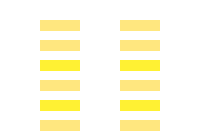
2.2.4 (2 > 40) - THE KHWĂN HEXAGRAM
- 2. The second line, divided,(shows the attribute of) being straight, square, and great. (Its operation), without repeated efforts, will be in every respect advantageous.
- 4. The fourth line, divided, (shows the symbol of) a sack tied up. There will be no ground for blame or for praise.
2.2.4 (2 > 40) - Obedience
One recognizes that they lack of means to help those who deserve it.
Bing DeepL Google Yandex2.2.4 (2 > 40) - Obedience
One recognizes that they lack of means to help those who deserve it.
Bing DeepL Google Yandex2.2.4 (2 > 40) - Kwūn, la réceptivité
Kwūn : a) Principe passif, réceptif. 1. Terre étendue et portant ; 2. Femme, femelle ; 3. Soumission, complaisance ; 4. Support, appui. — b) Kwun, fermer, lier. c) Kwun : vêtement impérial.
-
2. Droite, carrée, vaste (la terre), d’elle-même et sans travail, procure toujours des biens à l’homme.
La voie de la terre est brillante, produit de grandes choses. -
4. (Sens kwun, fermé.) Sac lié, fermé, ne peut être loué ou blâmé (quant à son contenu).
La prudence évite toute injure, tout dommage.
(Le sac fermé est la terre, dont le contenu est inconnu et caché. C’est aussi l’image de la prudence nécessaire à celui qui sert le prince.)
2.2.4 (2 > 40) - L'obéissance
On reconnaît qu’on manque de moyens pour aider ceux qui le méritent.
Bing DeepL Google Yandex2.2.4 (2 > 40) - Engedelmesség
- 2. Nem hallgat a véleményekre mert eltévedtek, de később kérdezni fog.
- 4. Nem tér vissza míg a legrátermettebb ki nem javítja a hibákat.
Le dérivé (Fan Yao) : 52.3
Le même trait sur l'hexagramme après la mutation. Il représente ce qui peut être fait APRÈS pour corriger la situation décrite par ce trait, un peu comme un remède ou une solution.

52.3 (52 > 23) - THE KĂN HEXAGRAM.
The third line, undivided, shows its subject keeping his loins at rest, and separating the ribs (from the body below). The situation is perilous, and the heart glows with suppressed excitement.
Bing DeepL Google Yandex52.3 (52 > 23) - Losing blood
One asks the most capable when others don't answer.
Bing DeepL Google Yandex52.3 (52 > 23) - Losing blood
One asks the most capable when others don't answer.
Bing DeepL Google Yandex52.3 (52 > 23) - Kán, l’arrêt
Kán : ferme, tenir droit, bien réglé, arrêter, reposer
Se tenir ferme à sa place et le corps (litt. : les côtes) bien tenu, (c’est ainsi que l’on doit être).
Bing DeepL Google Yandex52.3 (52 > 23) - Perdre son sang
On demande aux plus capables quand les autres ne répondent pas.
Bing DeepL Google Yandex52.3 (52 > 23) - Megállás
A legalkalmasabbat kéri ha mások nem válaszolnak.
Bing DeepL Google YandexLa jointure: 51.4
Le dérivé du réciproque. Il représente ce qui aurait pu être fait AVANT pour prévenir la situation décrite par ce trait, un peu comme un remède ou une solution.
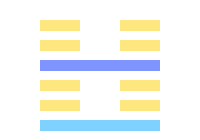
51.4 (51 > 24) - THE KĂN HEXAGRAM.
The fourth line, undivided, shows its subject, amid the startling movements, supinely sinking (deeper) in the mud.
Bing DeepL Google Yandex51.4 (51 > 24) - Being bogged down
One has to free oneself from others before one can go any further.
Bing DeepL Google Yandex51.4 (51 > 24) - Being bogged down
One has to free oneself from others before one can go any further.
Bing DeepL Google Yandex51.4 (51 > 24) - Kán, l’ébranlement
Kán : tonnerre, effroi répandu, crainte.
Le tonnerre approchant trouble et interdit [avant même l’éclair].
Bing DeepL Google Yandex51.4 (51 > 24) - Être embourbé
On doit se libérer des autres avant de pouvoir aller plus loin.
Bing DeepL Google Yandex51.4 (51 > 24) - Megrázkódtatás
Meg kell szabadítania magát a többiektől mielőtt tovább mehetne.
Bing DeepL Google YandexLe réciproque : 24.4
L'hexagramme renversé. Il représente la situation opposée, et en tant que tel est essentiel pour la validation des commentaires.
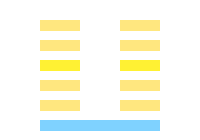
24.4 (24 > 51) - THE FÛ HEXAGRAM.
The fourth line, divided, shows its subject moving right in the centre (among those represented by the other divided lines), and yet returning alone (to his proper path).
Bing DeepL Google Yandex24.4 (24 > 51) - Freeing oneself from discomfort
One sees that others exaggerate, so one moves away.
Bing DeepL Google Yandex24.4 (24 > 51) - Freeing oneself from discomfort
One sees that others exaggerate, so one moves away.
Bing DeepL Google Yandex24.4 (24 > 51) - Fû, le retour
Fū : réparation, correction, amendement, retour à l’état originaire
Celui qui suit le chemin du juste milieu est le seul qui sache restaurer sa nature.
Il suit la droite raison.
24.4 (24 > 51) - Se libérer de l'inconfort
On voit que les autres exagèrent, alors on s'éloigne.
Bing DeepL Google YandexMutations

23.3 (23 > 52) - THE PO HEXAGRAM
The third line, divided, shows its subject among the overthrowers; but there will be no error.
Bing DeepL Google Yandex23.3 (23 > 52) - Poh, l’écroulement
Poh : opprimer, renverser, traiter durement.
Renverser, faire crouler quelque chose sans suite regrettable. C’est quand on le fait légitimement et pour bonnes raisons. C’est que cela atteint également grands et petits (ou abandonne).
Bing DeepL Google Yandex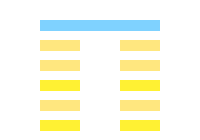
23.1.3 (23 > 22) - THE PO HEXAGRAM
- 1. The first line, divided, shows one overturning the couch by injuring its legs. (The injury will go on to) the destruction of (all) firm correctness, and there will be evil.
- 3. The third line, divided, shows its subject among the overthrowers; but there will be no error.
23.1.3 (23 > 22) - Taking a relaxation break
One saves some free time after a lot of work.
Bing DeepL Google Yandex23.1.3 (23 > 22) - Taking a relaxation break
One saves some free time after a lot of work.
Bing DeepL Google Yandex23.1.3 (23 > 22) - Poh, l’écroulement
Poh : opprimer, renverser, traiter durement.
-
1. Poh, « renverser, faire crouler » son lit en en brisant un pied et le détachant ainsi (suites funestes).
C’est le grand, le prince qui se nuit à lui-même en appauvrissant, affaiblissant son peuple. - 3. Renverser, faire crouler quelque chose sans suite regrettable. C’est quand on le fait légitimement et pour bonnes raisons. C’est que cela atteint également grands et petits (ou abandonne).
23.1.3 (23 > 22) - Faire une pause détente
On récupère un peu de temps libre après avoir beaucoup travaillé.
Bing DeepL Google Yandex23.1.3 (23 > 22) - Lepusztulás
- 1. Nem látja mit veszít.
- 3. Nem törődik a többiekkel többé.

23.2.3 (23 > 18) - THE PO HEXAGRAM
- 2. The second line, divided, shows one overthrowing the couch by injuring its frame. (The injury will go on to) the destruction of (all) firm correctness, and there will be evil.
- 3. The third line, divided, shows its subject among the overthrowers; but there will be no error.
23.2.3 (23 > 18) - Evacuating the premises
One is repatriating one's assistants so they won't be in trouble.
Bing DeepL Google Yandex23.2.3 (23 > 18) - Evacuating the premises
One is repatriating one's assistants so they won't be in trouble.
Bing DeepL Google Yandex23.2.3 (23 > 18) - Poh, l’écroulement
Poh : opprimer, renverser, traiter durement.
-
2. [i]Id. (Poh)[i], renverser son lit en en brisant la forme ; ruine, issue destructive. C’est celui qui se perd lui-même en perdant ses auxiliaires ; un roi, ses ministres ; un grand, ses employés et amis. (Dicton.)
Il n’aura pas de compagnons.
C’est la ruine s’étendant, gagnant le haut. - 3. Renverser, faire crouler quelque chose sans suite regrettable. C’est quand on le fait légitimement et pour bonnes raisons. C’est que cela atteint également grands et petits (ou abandonne).
23.2.3 (23 > 18) - Évacuer les lieux
On rapatrie ses assistants pour qu'ils ne soient pas mis en difficulté.
Bing DeepL Google Yandex23.2.3 (23 > 18) - Lepusztulás
- 2. Támasz, amire nem lehet számítani többé.
- 3. Nem törődik a többiekkel többé.

23.1.2.3 (23 > 26) - THE PO HEXAGRAM
- 1. The first line, divided, shows one overturning the couch by injuring its legs. (The injury will go on to) the destruction of (all) firm correctness, and there will be evil.
- 2. The second line, divided, shows one overthrowing the couch by injuring its frame. (The injury will go on to) the destruction of (all) firm correctness, and there will be evil.
- 3. The third line, divided, shows its subject among the overthrowers; but there will be no error.
23.1.2.3 (23 > 26) - Asking for more
One is calling for more resources to succeed in one's business.
Bing DeepL Google Yandex23.1.2.3 (23 > 26) - Asking for more
One is calling for more resources to succeed in one's business.
Bing DeepL Google Yandex23.1.2.3 (23 > 26) - Poh, l’écroulement
Poh : opprimer, renverser, traiter durement.
-
1. Poh, « renverser, faire crouler » son lit en en brisant un pied et le détachant ainsi (suites funestes).
C’est le grand, le prince qui se nuit à lui-même en appauvrissant, affaiblissant son peuple. -
2. [i]Id. (Poh)[i], renverser son lit en en brisant la forme ; ruine, issue destructive. C’est celui qui se perd lui-même en perdant ses auxiliaires ; un roi, ses ministres ; un grand, ses employés et amis. (Dicton.)
Il n’aura pas de compagnons.
C’est la ruine s’étendant, gagnant le haut. - 3. Renverser, faire crouler quelque chose sans suite regrettable. C’est quand on le fait légitimement et pour bonnes raisons. C’est que cela atteint également grands et petits (ou abandonne).
23.1.2.3 (23 > 26) - Demander une rallonge
On réclame plus de moyens pour réussir son entreprise.
Bing DeepL Google Yandex23.1.2.3 (23 > 26) - Lepusztulás
- 1. Nem látja mit veszít.
- 2. Támasz, amire nem lehet számítani többé.
- 3. Nem törődik a többiekkel többé.

23.3.4 (23 > 56) - THE PO HEXAGRAM
- 3. The third line, divided, shows its subject among the overthrowers; but there will be no error.
- 4. The fourth line, divided, shows its subject having overthrown the couch, and (going to injure) the skin (of him who lies on it). There will be evil.
23.3.4 (23 > 56) - Preparing to move ahead
One wastes one's life by waiting for the right time.
Bing DeepL Google Yandex23.3.4 (23 > 56) - Preparing to move ahead
One wastes one's life by waiting for the right time.
Bing DeepL Google Yandex23.3.4 (23 > 56) - Poh, l’écroulement
Poh : opprimer, renverser, traiter durement.
- 3. Renverser, faire crouler quelque chose sans suite regrettable. C’est quand on le fait légitimement et pour bonnes raisons. C’est que cela atteint également grands et petits (ou abandonne).
-
4. Renverser son lit en s’écorchant, en se nuisant à soi-même, destruction certaine, calamité proche.
Suite de la gradation, en renversant on se blesse
23.3.4 (23 > 56) - Reculer pour mieux sauter
On rate sa vie à force d'attendre le bon moment.
Bing DeepL Google Yandex23.3.4 (23 > 56) - Lepusztulás
- 3. Nem törődik a többiekkel többé.
- 4. Nem akar elviselni többé.
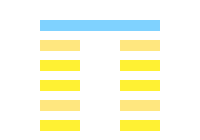
23.1.3.4 (23 > 30) - THE PO HEXAGRAM
- 1. The first line, divided, shows one overturning the couch by injuring its legs. (The injury will go on to) the destruction of (all) firm correctness, and there will be evil.
- 3. The third line, divided, shows its subject among the overthrowers; but there will be no error.
- 4. The fourth line, divided, shows its subject having overthrown the couch, and (going to injure) the skin (of him who lies on it). There will be evil.
23.1.3.4 (23 > 30) - Being wary of counterfeiting
One favors natural sources in order not to be misled about quality.
Bing DeepL Google Yandex23.1.3.4 (23 > 30) - Being wary of counterfeiting
One favors natural sources in order not to be misled about quality.
Bing DeepL Google Yandex23.1.3.4 (23 > 30) - Poh, l’écroulement
Poh : opprimer, renverser, traiter durement.
-
1. Poh, « renverser, faire crouler » son lit en en brisant un pied et le détachant ainsi (suites funestes).
C’est le grand, le prince qui se nuit à lui-même en appauvrissant, affaiblissant son peuple. - 3. Renverser, faire crouler quelque chose sans suite regrettable. C’est quand on le fait légitimement et pour bonnes raisons. C’est que cela atteint également grands et petits (ou abandonne).
-
4. Renverser son lit en s’écorchant, en se nuisant à soi-même, destruction certaine, calamité proche.
Suite de la gradation, en renversant on se blesse
23.1.3.4 (23 > 30) - Se méfier des contrefaçons
On privilégie les sources d'origine naturelle pour ne pas se faire tromper sur la qualité.
Bing DeepL Google Yandex23.1.3.4 (23 > 30) - Lepusztulás
- 1. Nem látja mit veszít.
- 3. Nem törődik a többiekkel többé.
- 4. Nem akar elviselni többé.

23.2.3.4 (23 > 50) - THE PO HEXAGRAM
- 2. The second line, divided, shows one overthrowing the couch by injuring its frame. (The injury will go on to) the destruction of (all) firm correctness, and there will be evil.
- 3. The third line, divided, shows its subject among the overthrowers; but there will be no error.
- 4. The fourth line, divided, shows its subject having overthrown the couch, and (going to injure) the skin (of him who lies on it). There will be evil.
23.2.3.4 (23 > 50) - Not willing to jeopardise a budding love
One prefers not to tell others the real reasons for their fall from grace.
Bing DeepL Google Yandex23.2.3.4 (23 > 50) - Not willing to jeopardize a budding love
One prefers not to tell others the real reasons for their fall from grace.
Bing DeepL Google Yandex23.2.3.4 (23 > 50) - Poh, l’écroulement
Poh : opprimer, renverser, traiter durement.
-
2. [i]Id. (Poh)[i], renverser son lit en en brisant la forme ; ruine, issue destructive. C’est celui qui se perd lui-même en perdant ses auxiliaires ; un roi, ses ministres ; un grand, ses employés et amis. (Dicton.)
Il n’aura pas de compagnons.
C’est la ruine s’étendant, gagnant le haut. - 3. Renverser, faire crouler quelque chose sans suite regrettable. C’est quand on le fait légitimement et pour bonnes raisons. C’est que cela atteint également grands et petits (ou abandonne).
-
4. Renverser son lit en s’écorchant, en se nuisant à soi-même, destruction certaine, calamité proche.
Suite de la gradation, en renversant on se blesse
23.2.3.4 (23 > 50) - Ne pas vouloir compromettre un amour naissant
On préfère ne pas dire aux autres les vraies raisons de leur déchéance.
Bing DeepL Google Yandex23.2.3.4 (23 > 50) - Lepusztulás
- 2. Támasz, amire nem lehet számítani többé.
- 3. Nem törődik a többiekkel többé.
- 4. Nem akar elviselni többé.

23.1.2.3.4 (23 > 14) - THE PO HEXAGRAM
- 1. The first line, divided, shows one overturning the couch by injuring its legs. (The injury will go on to) the destruction of (all) firm correctness, and there will be evil.
- 2. The second line, divided, shows one overthrowing the couch by injuring its frame. (The injury will go on to) the destruction of (all) firm correctness, and there will be evil.
- 3. The third line, divided, shows its subject among the overthrowers; but there will be no error.
- 4. The fourth line, divided, shows its subject having overthrown the couch, and (going to injure) the skin (of him who lies on it). There will be evil.
23.1.2.3.4 (23 > 14) - Showing up
One is moving forward a little further so as not to disappoint those who receive.
Bing DeepL Google Yandex23.1.2.3.4 (23 > 14) - Showing up
One is moving forward a little further so as not to disappoint those who receive.
Bing DeepL Google Yandex23.1.2.3.4 (23 > 14) - Poh, l’écroulement
Poh : opprimer, renverser, traiter durement.
-
1. Poh, « renverser, faire crouler » son lit en en brisant un pied et le détachant ainsi (suites funestes).
C’est le grand, le prince qui se nuit à lui-même en appauvrissant, affaiblissant son peuple. -
2. [i]Id. (Poh)[i], renverser son lit en en brisant la forme ; ruine, issue destructive. C’est celui qui se perd lui-même en perdant ses auxiliaires ; un roi, ses ministres ; un grand, ses employés et amis. (Dicton.)
Il n’aura pas de compagnons.
C’est la ruine s’étendant, gagnant le haut. - 3. Renverser, faire crouler quelque chose sans suite regrettable. C’est quand on le fait légitimement et pour bonnes raisons. C’est que cela atteint également grands et petits (ou abandonne).
-
4. Renverser son lit en s’écorchant, en se nuisant à soi-même, destruction certaine, calamité proche.
Suite de la gradation, en renversant on se blesse
23.1.2.3.4 (23 > 14) - Faire acte de présence
On avance encore un peu pour ne pas décevoir ceux qui reçoivent.
Bing DeepL Google Yandex23.1.2.3.4 (23 > 14) - Lepusztulás
- 1. Nem látja mit veszít.
- 2. Támasz, amire nem lehet számítani többé.
- 3. Nem törődik a többiekkel többé.
- 4. Nem akar elviselni többé.

23.3.5 (23 > 53) - THE PO HEXAGRAM
- 3. The third line, divided, shows its subject among the overthrowers; but there will be no error.
- 5. The fifth line, divided, shows (its subject leading on the others like) a string of fishes, and (obtaining for them) the favour that lights on the inmates of the palace. There will be advantage in every way.
23.3.5 (23 > 53) - Casting a wide net
One prepares more ideas so as not to be caught off guard.
Bing DeepL Google Yandex23.3.5 (23 > 53) - Casting a wide net
One prepares more ideas so as not to be caught off guard.
Bing DeepL Google Yandex23.3.5 (23 > 53) - Poh, l’écroulement
Poh : opprimer, renverser, traiter durement.
- 3. Renverser, faire crouler quelque chose sans suite regrettable. C’est quand on le fait légitimement et pour bonnes raisons. C’est que cela atteint également grands et petits (ou abandonne).
-
5. Le prince généreux envers les gens du palais (litt.(/i] : qui enfile des poissons pour en faire présent), en retirera des avantages certains.
Peut-être devrait-on admettre déjà ici l’élément figuratif et symbolique, et voir dans l’hexagramme la figure du prince (ligne pleine supérieure) au-dessus de ses officiers rangés comme des poissons séchés et traduire : avoir des officiers comme des poissons enfilés. Alors, il s’agirait de [i]p’o, gens du palais.
23.3.5 (23 > 53) - Ratisser large
On prépare davantage d'idées pour ne pas être pris au dépourvu.
Bing DeepL Google Yandex23.3.5 (23 > 53) - Lepusztulás
- 3. Nem törődik a többiekkel többé.
- 5. Látja mi nem működik.
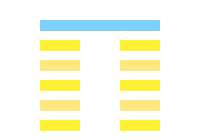
23.1.3.5 (23 > 37) - THE PO HEXAGRAM
- 1. The first line, divided, shows one overturning the couch by injuring its legs. (The injury will go on to) the destruction of (all) firm correctness, and there will be evil.
- 3. The third line, divided, shows its subject among the overthrowers; but there will be no error.
- 5. The fifth line, divided, shows (its subject leading on the others like) a string of fishes, and (obtaining for them) the favour that lights on the inmates of the palace. There will be advantage in every way.
23.1.3.5 (23 > 37) - Passing out
One starts to slow down under the influence of non-compliant substances.
Bing DeepL Google Yandex23.1.3.5 (23 > 37) - Passing out
One starts to slow down under the influence of non-compliant substances.
Bing DeepL Google Yandex23.1.3.5 (23 > 37) - Poh, l’écroulement
Poh : opprimer, renverser, traiter durement.
-
1. Poh, « renverser, faire crouler » son lit en en brisant un pied et le détachant ainsi (suites funestes).
C’est le grand, le prince qui se nuit à lui-même en appauvrissant, affaiblissant son peuple. - 3. Renverser, faire crouler quelque chose sans suite regrettable. C’est quand on le fait légitimement et pour bonnes raisons. C’est que cela atteint également grands et petits (ou abandonne).
-
5. Le prince généreux envers les gens du palais (litt.(/i] : qui enfile des poissons pour en faire présent), en retirera des avantages certains.
Peut-être devrait-on admettre déjà ici l’élément figuratif et symbolique, et voir dans l’hexagramme la figure du prince (ligne pleine supérieure) au-dessus de ses officiers rangés comme des poissons séchés et traduire : avoir des officiers comme des poissons enfilés. Alors, il s’agirait de [i]p’o, gens du palais.
23.1.3.5 (23 > 37) - Comater
On se met à ralentir sous l'effet de substances non conformes.
Bing DeepL Google Yandex23.1.3.5 (23 > 37) - Lepusztulás
- 1. Nem látja mit veszít.
- 3. Nem törődik a többiekkel többé.
- 5. Látja mi nem működik.
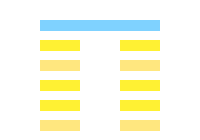
23.2.3.5 (23 > 57) - THE PO HEXAGRAM
- 2. The second line, divided, shows one overthrowing the couch by injuring its frame. (The injury will go on to) the destruction of (all) firm correctness, and there will be evil.
- 3. The third line, divided, shows its subject among the overthrowers; but there will be no error.
- 5. The fifth line, divided, shows (its subject leading on the others like) a string of fishes, and (obtaining for them) the favour that lights on the inmates of the palace. There will be advantage in every way.
23.2.3.5 (23 > 57) - Fleeing the palaver tree
One yearns for more tranquility so one doesn't answer anymore.
Bing DeepL Google Yandex23.2.3.5 (23 > 57) - Fleeing the palaver tree
One yearns for more tranquility so one doesn't answer anymore.
Bing DeepL Google Yandex23.2.3.5 (23 > 57) - Poh, l’écroulement
Poh : opprimer, renverser, traiter durement.
-
2. [i]Id. (Poh)[i], renverser son lit en en brisant la forme ; ruine, issue destructive. C’est celui qui se perd lui-même en perdant ses auxiliaires ; un roi, ses ministres ; un grand, ses employés et amis. (Dicton.)
Il n’aura pas de compagnons.
C’est la ruine s’étendant, gagnant le haut. - 3. Renverser, faire crouler quelque chose sans suite regrettable. C’est quand on le fait légitimement et pour bonnes raisons. C’est que cela atteint également grands et petits (ou abandonne).
-
5. Le prince généreux envers les gens du palais (litt.(/i] : qui enfile des poissons pour en faire présent), en retirera des avantages certains.
Peut-être devrait-on admettre déjà ici l’élément figuratif et symbolique, et voir dans l’hexagramme la figure du prince (ligne pleine supérieure) au-dessus de ses officiers rangés comme des poissons séchés et traduire : avoir des officiers comme des poissons enfilés. Alors, il s’agirait de [i]p’o, gens du palais.
23.2.3.5 (23 > 57) - Fuir l'arbre à palabres
On aspire à plus de tranquillité alors on ne répond plus.
Bing DeepL Google Yandex23.2.3.5 (23 > 57) - Lepusztulás
- 2. Támasz, amire nem lehet számítani többé.
- 3. Nem törődik a többiekkel többé.
- 5. Látja mi nem működik.
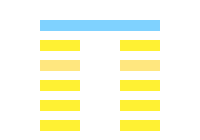
23.1.2.3.5 (23 > 9) - THE PO HEXAGRAM
- 1. The first line, divided, shows one overturning the couch by injuring its legs. (The injury will go on to) the destruction of (all) firm correctness, and there will be evil.
- 2. The second line, divided, shows one overthrowing the couch by injuring its frame. (The injury will go on to) the destruction of (all) firm correctness, and there will be evil.
- 3. The third line, divided, shows its subject among the overthrowers; but there will be no error.
- 5. The fifth line, divided, shows (its subject leading on the others like) a string of fishes, and (obtaining for them) the favour that lights on the inmates of the palace. There will be advantage in every way.
23.1.2.3.5 (23 > 9) - Cooling down
One assumes that one's friends won't oppose if one takes rest.
Bing DeepL Google Yandex23.1.2.3.5 (23 > 9) - Cooling down
One assumes that one's friends won't oppose if one takes rest.
Bing DeepL Google Yandex23.1.2.3.5 (23 > 9) - Poh, l’écroulement
Poh : opprimer, renverser, traiter durement.
-
1. Poh, « renverser, faire crouler » son lit en en brisant un pied et le détachant ainsi (suites funestes).
C’est le grand, le prince qui se nuit à lui-même en appauvrissant, affaiblissant son peuple. -
2. [i]Id. (Poh)[i], renverser son lit en en brisant la forme ; ruine, issue destructive. C’est celui qui se perd lui-même en perdant ses auxiliaires ; un roi, ses ministres ; un grand, ses employés et amis. (Dicton.)
Il n’aura pas de compagnons.
C’est la ruine s’étendant, gagnant le haut. - 3. Renverser, faire crouler quelque chose sans suite regrettable. C’est quand on le fait légitimement et pour bonnes raisons. C’est que cela atteint également grands et petits (ou abandonne).
-
5. Le prince généreux envers les gens du palais (litt.(/i] : qui enfile des poissons pour en faire présent), en retirera des avantages certains.
Peut-être devrait-on admettre déjà ici l’élément figuratif et symbolique, et voir dans l’hexagramme la figure du prince (ligne pleine supérieure) au-dessus de ses officiers rangés comme des poissons séchés et traduire : avoir des officiers comme des poissons enfilés. Alors, il s’agirait de [i]p’o, gens du palais.
23.1.2.3.5 (23 > 9) - Se remettre de ses émotions
On suppose que ses amis ne s'opposeront pas à ce qu'on prenne du repos.
Bing DeepL Google Yandex23.1.2.3.5 (23 > 9) - Lepusztulás
- 1. Nem látja mit veszít.
- 2. Támasz, amire nem lehet számítani többé.
- 3. Nem törődik a többiekkel többé.
- 5. Látja mi nem működik.

23.3.4.5 (23 > 33) - THE PO HEXAGRAM
- 3. The third line, divided, shows its subject among the overthrowers; but there will be no error.
- 4. The fourth line, divided, shows its subject having overthrown the couch, and (going to injure) the skin (of him who lies on it). There will be evil.
- 5. The fifth line, divided, shows (its subject leading on the others like) a string of fishes, and (obtaining for them) the favour that lights on the inmates of the palace. There will be advantage in every way.
23.3.4.5 (23 > 33) - Leaving in peace
One respects others when they are able to withdraw for the good of the greatest number.
Bing DeepL Google Yandex23.3.4.5 (23 > 33) - Leaving in peace
One respects others when they are able to withdraw for the good of the greatest number.
Bing DeepL Google Yandex23.3.4.5 (23 > 33) - Poh, l’écroulement
Poh : opprimer, renverser, traiter durement.
- 3. Renverser, faire crouler quelque chose sans suite regrettable. C’est quand on le fait légitimement et pour bonnes raisons. C’est que cela atteint également grands et petits (ou abandonne).
-
4. Renverser son lit en s’écorchant, en se nuisant à soi-même, destruction certaine, calamité proche.
Suite de la gradation, en renversant on se blesse -
5. Le prince généreux envers les gens du palais (litt.(/i] : qui enfile des poissons pour en faire présent), en retirera des avantages certains.
Peut-être devrait-on admettre déjà ici l’élément figuratif et symbolique, et voir dans l’hexagramme la figure du prince (ligne pleine supérieure) au-dessus de ses officiers rangés comme des poissons séchés et traduire : avoir des officiers comme des poissons enfilés. Alors, il s’agirait de [i]p’o, gens du palais.
23.3.4.5 (23 > 33) - Partir en paix
On respecte les autres quand ils sont capables de se mettre en retrait pour le bien du plus grand nombre.
Bing DeepL Google Yandex23.3.4.5 (23 > 33) - Lepusztulás
- 3. Nem törődik a többiekkel többé.
- 4. Nem akar elviselni többé.
- 5. Látja mi nem működik.
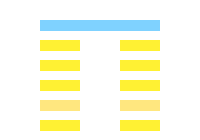
23.1.3.4.5 (23 > 13) - THE PO HEXAGRAM
- 1. The first line, divided, shows one overturning the couch by injuring its legs. (The injury will go on to) the destruction of (all) firm correctness, and there will be evil.
- 3. The third line, divided, shows its subject among the overthrowers; but there will be no error.
- 4. The fourth line, divided, shows its subject having overthrown the couch, and (going to injure) the skin (of him who lies on it). There will be evil.
- 5. The fifth line, divided, shows (its subject leading on the others like) a string of fishes, and (obtaining for them) the favour that lights on the inmates of the palace. There will be advantage in every way.
23.1.3.4.5 (23 > 13) - Chasing intruders
Others order one to leave their domain.
Bing DeepL Google Yandex23.1.3.4.5 (23 > 13) - Chasing intruders
Others order one to leave their domain.
Bing DeepL Google Yandex23.1.3.4.5 (23 > 13) - Poh, l’écroulement
Poh : opprimer, renverser, traiter durement.
-
1. Poh, « renverser, faire crouler » son lit en en brisant un pied et le détachant ainsi (suites funestes).
C’est le grand, le prince qui se nuit à lui-même en appauvrissant, affaiblissant son peuple. - 3. Renverser, faire crouler quelque chose sans suite regrettable. C’est quand on le fait légitimement et pour bonnes raisons. C’est que cela atteint également grands et petits (ou abandonne).
-
4. Renverser son lit en s’écorchant, en se nuisant à soi-même, destruction certaine, calamité proche.
Suite de la gradation, en renversant on se blesse -
5. Le prince généreux envers les gens du palais (litt.(/i] : qui enfile des poissons pour en faire présent), en retirera des avantages certains.
Peut-être devrait-on admettre déjà ici l’élément figuratif et symbolique, et voir dans l’hexagramme la figure du prince (ligne pleine supérieure) au-dessus de ses officiers rangés comme des poissons séchés et traduire : avoir des officiers comme des poissons enfilés. Alors, il s’agirait de [i]p’o, gens du palais.
23.1.3.4.5 (23 > 13) - Chasser les intrus
Les autres ordonnent que l'on sorte de leur domaine.
Bing DeepL Google Yandex23.1.3.4.5 (23 > 13) - Lepusztulás
- 1. Nem látja mit veszít.
- 3. Nem törődik a többiekkel többé.
- 4. Nem akar elviselni többé.
- 5. Látja mi nem működik.

23.2.3.4.5 (23 > 44) - THE PO HEXAGRAM
- 2. The second line, divided, shows one overthrowing the couch by injuring its frame. (The injury will go on to) the destruction of (all) firm correctness, and there will be evil.
- 3. The third line, divided, shows its subject among the overthrowers; but there will be no error.
- 4. The fourth line, divided, shows its subject having overthrown the couch, and (going to injure) the skin (of him who lies on it). There will be evil.
- 5. The fifth line, divided, shows (its subject leading on the others like) a string of fishes, and (obtaining for them) the favour that lights on the inmates of the palace. There will be advantage in every way.
23.2.3.4.5 (23 > 44) - Taking the risk of being screwed
One assumes that the others are not that kind.
23.2.3.4.5 (23 > 44) - Taking the risk of being screwed
One assumes that the others are not that kind.
23.2.3.4.5 (23 > 44) - Poh, l’écroulement
Poh : opprimer, renverser, traiter durement.
-
2. [i]Id. (Poh)[i], renverser son lit en en brisant la forme ; ruine, issue destructive. C’est celui qui se perd lui-même en perdant ses auxiliaires ; un roi, ses ministres ; un grand, ses employés et amis. (Dicton.)
Il n’aura pas de compagnons.
C’est la ruine s’étendant, gagnant le haut. - 3. Renverser, faire crouler quelque chose sans suite regrettable. C’est quand on le fait légitimement et pour bonnes raisons. C’est que cela atteint également grands et petits (ou abandonne).
-
4. Renverser son lit en s’écorchant, en se nuisant à soi-même, destruction certaine, calamité proche.
Suite de la gradation, en renversant on se blesse -
5. Le prince généreux envers les gens du palais (litt.(/i] : qui enfile des poissons pour en faire présent), en retirera des avantages certains.
Peut-être devrait-on admettre déjà ici l’élément figuratif et symbolique, et voir dans l’hexagramme la figure du prince (ligne pleine supérieure) au-dessus de ses officiers rangés comme des poissons séchés et traduire : avoir des officiers comme des poissons enfilés. Alors, il s’agirait de [i]p’o, gens du palais.
23.2.3.4.5 (23 > 44) - Prendre le risque de se faire avoir
On présume que les autres ne sont pas de ce genre là.
Bing DeepL Google Yandex23.2.3.4.5 (23 > 44) - Lepusztulás
- 2. Támasz, amire nem lehet számítani többé.
- 3. Nem törődik a többiekkel többé.
- 4. Nem akar elviselni többé.
- 5. Látja mi nem működik.

23.1.2.3.4.5 (23 > 1) - THE PO HEXAGRAM
- 1. The first line, divided, shows one overturning the couch by injuring its legs. (The injury will go on to) the destruction of (all) firm correctness, and there will be evil.
- 2. The second line, divided, shows one overthrowing the couch by injuring its frame. (The injury will go on to) the destruction of (all) firm correctness, and there will be evil.
- 3. The third line, divided, shows its subject among the overthrowers; but there will be no error.
- 4. The fourth line, divided, shows its subject having overthrown the couch, and (going to injure) the skin (of him who lies on it). There will be evil.
- 5. The fifth line, divided, shows (its subject leading on the others like) a string of fishes, and (obtaining for them) the favour that lights on the inmates of the palace. There will be advantage in every way.
23.1.2.3.4.5 (23 > 1) - Poh, l’écroulement
Poh : opprimer, renverser, traiter durement.
-
1. Poh, « renverser, faire crouler » son lit en en brisant un pied et le détachant ainsi (suites funestes).
C’est le grand, le prince qui se nuit à lui-même en appauvrissant, affaiblissant son peuple. -
2. [i]Id. (Poh)[i], renverser son lit en en brisant la forme ; ruine, issue destructive. C’est celui qui se perd lui-même en perdant ses auxiliaires ; un roi, ses ministres ; un grand, ses employés et amis. (Dicton.)
Il n’aura pas de compagnons.
C’est la ruine s’étendant, gagnant le haut. - 3. Renverser, faire crouler quelque chose sans suite regrettable. C’est quand on le fait légitimement et pour bonnes raisons. C’est que cela atteint également grands et petits (ou abandonne).
-
4. Renverser son lit en s’écorchant, en se nuisant à soi-même, destruction certaine, calamité proche.
Suite de la gradation, en renversant on se blesse -
5. Le prince généreux envers les gens du palais (litt.(/i] : qui enfile des poissons pour en faire présent), en retirera des avantages certains.
Peut-être devrait-on admettre déjà ici l’élément figuratif et symbolique, et voir dans l’hexagramme la figure du prince (ligne pleine supérieure) au-dessus de ses officiers rangés comme des poissons séchés et traduire : avoir des officiers comme des poissons enfilés. Alors, il s’agirait de [i]p’o, gens du palais.
23.1.2.3.4.5 (23 > 1) - Ne pas lâcher prise
On fait des efforts pour continuer.
Bing DeepL Google Yandex23.1.2.3.4.5 (23 > 1) - Lepusztulás
- 1. Nem látja mit veszít.
- 2. Támasz, amire nem lehet számítani többé.
- 3. Nem törődik a többiekkel többé.
- 4. Nem akar elviselni többé.
- 5. Látja mi nem működik.
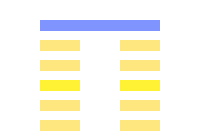
23.3.6 (23 > 15) - THE PO HEXAGRAM
- 3. The third line, divided, shows its subject among the overthrowers; but there will be no error.
- 6. The topmost line, undivided, shows its subject (as) a great fruit which has not been eaten. The superior man finds (the people again) as a chariot carrying him. The small men (by their course) overthrow their own dwellings.
23.3.6 (23 > 15) - Sacrificing one's best friends
One sends one's allies to great perils.
Bing DeepL Google Yandex23.3.6 (23 > 15) - Sacrificing one's best friends
One sends one's allies to great perils.
Bing DeepL Google Yandex23.3.6 (23 > 15) - Poh, l’écroulement
Poh : opprimer, renverser, traiter durement.
- 3. Renverser, faire crouler quelque chose sans suite regrettable. C’est quand on le fait légitimement et pour bonnes raisons. C’est que cela atteint également grands et petits (ou abandonne).
-
6. Fruit tout formé qu’on ne mange pas (bien acquis qui se détruit). Le sage, l’homme supérieur conquiert la terre (ou acquiert un char, le peuple qui le porte sur ses bras) ; l’homme bas et vulgaire fait crouler (poh) jusqu’à sa demeure (le fruit formé qu’il ne peut manger).
Il ne pourra plus en user.
23.3.6 (23 > 15) - Sacrifier ses meilleurs amis
On envoie ses alliés au devant de grands périls.
Bing DeepL Google Yandex23.3.6 (23 > 15) - Lepusztulás
- 3. Nem törődik a többiekkel többé.
- 6. Elfogadja a veszteséget. Támogatást és lehetőséget kap.
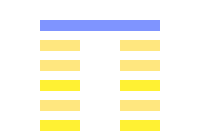
23.1.3.6 (23 > 36) - THE PO HEXAGRAM
- 1. The first line, divided, shows one overturning the couch by injuring its legs. (The injury will go on to) the destruction of (all) firm correctness, and there will be evil.
- 3. The third line, divided, shows its subject among the overthrowers; but there will be no error.
- 6. The topmost line, undivided, shows its subject (as) a great fruit which has not been eaten. The superior man finds (the people again) as a chariot carrying him. The small men (by their course) overthrow their own dwellings.
23.1.3.6 (23 > 36) - Fleeing the laws
One exiles oneself so one doesn't get caught.
Bing DeepL Google Yandex23.1.3.6 (23 > 36) - Fleeing the laws
One exiles oneself so one doesn't get caught.
Bing DeepL Google Yandex23.1.3.6 (23 > 36) - Poh, l’écroulement
Poh : opprimer, renverser, traiter durement.
-
1. Poh, « renverser, faire crouler » son lit en en brisant un pied et le détachant ainsi (suites funestes).
C’est le grand, le prince qui se nuit à lui-même en appauvrissant, affaiblissant son peuple. - 3. Renverser, faire crouler quelque chose sans suite regrettable. C’est quand on le fait légitimement et pour bonnes raisons. C’est que cela atteint également grands et petits (ou abandonne).
-
6. Fruit tout formé qu’on ne mange pas (bien acquis qui se détruit). Le sage, l’homme supérieur conquiert la terre (ou acquiert un char, le peuple qui le porte sur ses bras) ; l’homme bas et vulgaire fait crouler (poh) jusqu’à sa demeure (le fruit formé qu’il ne peut manger).
Il ne pourra plus en user.
23.1.3.6 (23 > 36) - Fuir les lois
On s'exile pour ne pas se faire prendre.
Bing DeepL Google Yandex23.1.3.6 (23 > 36) - Lepusztulás
- 1. Nem látja mit veszít.
- 3. Nem törődik a többiekkel többé.
- 6. Elfogadja a veszteséget. Támogatást és lehetőséget kap.
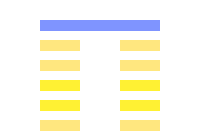
23.2.3.6 (23 > 46) - THE PO HEXAGRAM
- 2. The second line, divided, shows one overthrowing the couch by injuring its frame. (The injury will go on to) the destruction of (all) firm correctness, and there will be evil.
- 3. The third line, divided, shows its subject among the overthrowers; but there will be no error.
- 6. The topmost line, undivided, shows its subject (as) a great fruit which has not been eaten. The superior man finds (the people again) as a chariot carrying him. The small men (by their course) overthrow their own dwellings.
23.2.3.6 (23 > 46) - Aggravating one's situation
One does worse than the other times because they have not been condemned harshly enough.
Bing DeepL Google Yandex23.2.3.6 (23 > 46) - Aggravating one's situation
One does worse than the other times because they have not been condemned harshly enough.
Bing DeepL Google Yandex23.2.3.6 (23 > 46) - Poh, l’écroulement
Poh : opprimer, renverser, traiter durement.
-
2. [i]Id. (Poh)[i], renverser son lit en en brisant la forme ; ruine, issue destructive. C’est celui qui se perd lui-même en perdant ses auxiliaires ; un roi, ses ministres ; un grand, ses employés et amis. (Dicton.)
Il n’aura pas de compagnons.
C’est la ruine s’étendant, gagnant le haut. - 3. Renverser, faire crouler quelque chose sans suite regrettable. C’est quand on le fait légitimement et pour bonnes raisons. C’est que cela atteint également grands et petits (ou abandonne).
-
6. Fruit tout formé qu’on ne mange pas (bien acquis qui se détruit). Le sage, l’homme supérieur conquiert la terre (ou acquiert un char, le peuple qui le porte sur ses bras) ; l’homme bas et vulgaire fait crouler (poh) jusqu’à sa demeure (le fruit formé qu’il ne peut manger).
Il ne pourra plus en user.
23.2.3.6 (23 > 46) - Aggraver sa situation
On fait pire que les autres fois car on n'a pas été condamné assez sévèrement.
Bing DeepL Google Yandex23.2.3.6 (23 > 46) - Lepusztulás
- 2. Támasz, amire nem lehet számítani többé.
- 3. Nem törődik a többiekkel többé.
- 6. Elfogadja a veszteséget. Támogatást és lehetőséget kap.
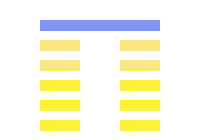
23.1.2.3.6 (23 > 11) - THE PO HEXAGRAM
- 1. The first line, divided, shows one overturning the couch by injuring its legs. (The injury will go on to) the destruction of (all) firm correctness, and there will be evil.
- 2. The second line, divided, shows one overthrowing the couch by injuring its frame. (The injury will go on to) the destruction of (all) firm correctness, and there will be evil.
- 3. The third line, divided, shows its subject among the overthrowers; but there will be no error.
- 6. The topmost line, undivided, shows its subject (as) a great fruit which has not been eaten. The superior man finds (the people again) as a chariot carrying him. The small men (by their course) overthrow their own dwellings.
23.1.2.3.6 (23 > 11) - Courting
One achieves one's goal by being courteous while remaining firm on one's values.
Bing DeepL Google Yandex23.1.2.3.6 (23 > 11) - Courting
One achieves one's goal by being courteous while remaining firm on one's values.
Bing DeepL Google Yandex23.1.2.3.6 (23 > 11) - Poh, l’écroulement
Poh : opprimer, renverser, traiter durement.
-
1. Poh, « renverser, faire crouler » son lit en en brisant un pied et le détachant ainsi (suites funestes).
C’est le grand, le prince qui se nuit à lui-même en appauvrissant, affaiblissant son peuple. -
2. [i]Id. (Poh)[i], renverser son lit en en brisant la forme ; ruine, issue destructive. C’est celui qui se perd lui-même en perdant ses auxiliaires ; un roi, ses ministres ; un grand, ses employés et amis. (Dicton.)
Il n’aura pas de compagnons.
C’est la ruine s’étendant, gagnant le haut. - 3. Renverser, faire crouler quelque chose sans suite regrettable. C’est quand on le fait légitimement et pour bonnes raisons. C’est que cela atteint également grands et petits (ou abandonne).
-
6. Fruit tout formé qu’on ne mange pas (bien acquis qui se détruit). Le sage, l’homme supérieur conquiert la terre (ou acquiert un char, le peuple qui le porte sur ses bras) ; l’homme bas et vulgaire fait crouler (poh) jusqu’à sa demeure (le fruit formé qu’il ne peut manger).
Il ne pourra plus en user.
23.1.2.3.6 (23 > 11) - Courtiser
On atteint son but en faisant preuve de courtoisie tout en restant ferme sur ses valeurs.
Bing DeepL Google Yandex23.1.2.3.6 (23 > 11) - Lepusztulás
- 1. Nem látja mit veszít.
- 2. Támasz, amire nem lehet számítani többé.
- 3. Nem törődik a többiekkel többé.
- 6. Elfogadja a veszteséget. Támogatást és lehetőséget kap.
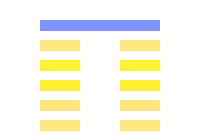
23.3.4.6 (23 > 62) - THE PO HEXAGRAM
- 3. The third line, divided, shows its subject among the overthrowers; but there will be no error.
- 4. The fourth line, divided, shows its subject having overthrown the couch, and (going to injure) the skin (of him who lies on it). There will be evil.
- 6. The topmost line, undivided, shows its subject (as) a great fruit which has not been eaten. The superior man finds (the people again) as a chariot carrying him. The small men (by their course) overthrow their own dwellings.
23.3.4.6 (23 > 62) - Wanting to understand the reasoning
One closely monitors the logic of the statement made.
Bing DeepL Google Yandex23.3.4.6 (23 > 62) - Wanting to understand the reasoning
One closely monitors the logic of the statement made.
Bing DeepL Google Yandex23.3.4.6 (23 > 62) - Poh, l’écroulement
Poh : opprimer, renverser, traiter durement.
- 3. Renverser, faire crouler quelque chose sans suite regrettable. C’est quand on le fait légitimement et pour bonnes raisons. C’est que cela atteint également grands et petits (ou abandonne).
-
4. Renverser son lit en s’écorchant, en se nuisant à soi-même, destruction certaine, calamité proche.
Suite de la gradation, en renversant on se blesse -
6. Fruit tout formé qu’on ne mange pas (bien acquis qui se détruit). Le sage, l’homme supérieur conquiert la terre (ou acquiert un char, le peuple qui le porte sur ses bras) ; l’homme bas et vulgaire fait crouler (poh) jusqu’à sa demeure (le fruit formé qu’il ne peut manger).
Il ne pourra plus en user.
23.3.4.6 (23 > 62) - Vouloir comprendre le raisonnement
On suit avec attention la logique des propos tenus.
Bing DeepL Google Yandex23.3.4.6 (23 > 62) - Lepusztulás
- 3. Nem törődik a többiekkel többé.
- 4. Nem akar elviselni többé.
- 6. Elfogadja a veszteséget. Támogatást és lehetőséget kap.
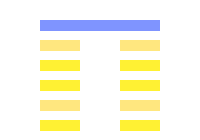
23.1.3.4.6 (23 > 55) - THE PO HEXAGRAM
- 1. The first line, divided, shows one overturning the couch by injuring its legs. (The injury will go on to) the destruction of (all) firm correctness, and there will be evil.
- 3. The third line, divided, shows its subject among the overthrowers; but there will be no error.
- 4. The fourth line, divided, shows its subject having overthrown the couch, and (going to injure) the skin (of him who lies on it). There will be evil.
- 6. The topmost line, undivided, shows its subject (as) a great fruit which has not been eaten. The superior man finds (the people again) as a chariot carrying him. The small men (by their course) overthrow their own dwellings.
23.1.3.4.6 (23 > 55) - Failing to comply
One pretends a bad feeling for not doing one's duty.
Bing DeepL Google Yandex23.1.3.4.6 (23 > 55) - Failing to comply
One pretends a bad feeling for not doing one's duty.
Bing DeepL Google Yandex23.1.3.4.6 (23 > 55) - Poh, l’écroulement
Poh : opprimer, renverser, traiter durement.
-
1. Poh, « renverser, faire crouler » son lit en en brisant un pied et le détachant ainsi (suites funestes).
C’est le grand, le prince qui se nuit à lui-même en appauvrissant, affaiblissant son peuple. - 3. Renverser, faire crouler quelque chose sans suite regrettable. C’est quand on le fait légitimement et pour bonnes raisons. C’est que cela atteint également grands et petits (ou abandonne).
-
4. Renverser son lit en s’écorchant, en se nuisant à soi-même, destruction certaine, calamité proche.
Suite de la gradation, en renversant on se blesse -
6. Fruit tout formé qu’on ne mange pas (bien acquis qui se détruit). Le sage, l’homme supérieur conquiert la terre (ou acquiert un char, le peuple qui le porte sur ses bras) ; l’homme bas et vulgaire fait crouler (poh) jusqu’à sa demeure (le fruit formé qu’il ne peut manger).
Il ne pourra plus en user.
23.1.3.4.6 (23 > 55) - Se défiler
On prétexte un mauvais pressentiment pour ne pas faire son devoir.
Bing DeepL Google Yandex23.1.3.4.6 (23 > 55) - Lepusztulás
- 1. Nem látja mit veszít.
- 3. Nem törődik a többiekkel többé.
- 4. Nem akar elviselni többé.
- 6. Elfogadja a veszteséget. Támogatást és lehetőséget kap.
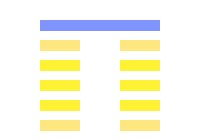
23.2.3.4.6 (23 > 32) - THE PO HEXAGRAM
- 2. The second line, divided, shows one overthrowing the couch by injuring its frame. (The injury will go on to) the destruction of (all) firm correctness, and there will be evil.
- 3. The third line, divided, shows its subject among the overthrowers; but there will be no error.
- 4. The fourth line, divided, shows its subject having overthrown the couch, and (going to injure) the skin (of him who lies on it). There will be evil.
- 6. The topmost line, undivided, shows its subject (as) a great fruit which has not been eaten. The superior man finds (the people again) as a chariot carrying him. The small men (by their course) overthrow their own dwellings.
23.2.3.4.6 (23 > 32) - Continuing without a coach
One would be wrong to believe that others could succeed without practice.
Bing DeepL Google Yandex23.2.3.4.6 (23 > 32) - Continuing without a coach
One would be wrong to believe that others could succeed without practice.
Bing DeepL Google Yandex23.2.3.4.6 (23 > 32) - Poh, l’écroulement
Poh : opprimer, renverser, traiter durement.
-
2. [i]Id. (Poh)[i], renverser son lit en en brisant la forme ; ruine, issue destructive. C’est celui qui se perd lui-même en perdant ses auxiliaires ; un roi, ses ministres ; un grand, ses employés et amis. (Dicton.)
Il n’aura pas de compagnons.
C’est la ruine s’étendant, gagnant le haut. - 3. Renverser, faire crouler quelque chose sans suite regrettable. C’est quand on le fait légitimement et pour bonnes raisons. C’est que cela atteint également grands et petits (ou abandonne).
-
4. Renverser son lit en s’écorchant, en se nuisant à soi-même, destruction certaine, calamité proche.
Suite de la gradation, en renversant on se blesse -
6. Fruit tout formé qu’on ne mange pas (bien acquis qui se détruit). Le sage, l’homme supérieur conquiert la terre (ou acquiert un char, le peuple qui le porte sur ses bras) ; l’homme bas et vulgaire fait crouler (poh) jusqu’à sa demeure (le fruit formé qu’il ne peut manger).
Il ne pourra plus en user.
23.2.3.4.6 (23 > 32) - Continuer sans entraîneur
On aurait tort de croire que les autres ont pu réussir sans entraînement.
Bing DeepL Google Yandex23.2.3.4.6 (23 > 32) - Lepusztulás
- 2. Támasz, amire nem lehet számítani többé.
- 3. Nem törődik a többiekkel többé.
- 4. Nem akar elviselni többé.
- 6. Elfogadja a veszteséget. Támogatást és lehetőséget kap.
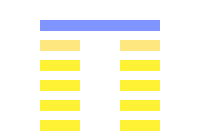
23.1.2.3.4.6 (23 > 34) - THE PO HEXAGRAM
- 1. The first line, divided, shows one overturning the couch by injuring its legs. (The injury will go on to) the destruction of (all) firm correctness, and there will be evil.
- 2. The second line, divided, shows one overthrowing the couch by injuring its frame. (The injury will go on to) the destruction of (all) firm correctness, and there will be evil.
- 3. The third line, divided, shows its subject among the overthrowers; but there will be no error.
- 4. The fourth line, divided, shows its subject having overthrown the couch, and (going to injure) the skin (of him who lies on it). There will be evil.
- 6. The topmost line, undivided, shows its subject (as) a great fruit which has not been eaten. The superior man finds (the people again) as a chariot carrying him. The small men (by their course) overthrow their own dwellings.
23.1.2.3.4.6 (23 > 34) - Sterilising the debate
One specifically complicates things as much so that nobody can find their way around.
Bing DeepL Google Yandex23.1.2.3.4.6 (23 > 34) - Sterilizing the debate
One specifically complicates things as much so that nobody can find their way around.
Bing DeepL Google Yandex23.1.2.3.4.6 (23 > 34) - Poh, l’écroulement
Poh : opprimer, renverser, traiter durement.
-
1. Poh, « renverser, faire crouler » son lit en en brisant un pied et le détachant ainsi (suites funestes).
C’est le grand, le prince qui se nuit à lui-même en appauvrissant, affaiblissant son peuple. -
2. [i]Id. (Poh)[i], renverser son lit en en brisant la forme ; ruine, issue destructive. C’est celui qui se perd lui-même en perdant ses auxiliaires ; un roi, ses ministres ; un grand, ses employés et amis. (Dicton.)
Il n’aura pas de compagnons.
C’est la ruine s’étendant, gagnant le haut. - 3. Renverser, faire crouler quelque chose sans suite regrettable. C’est quand on le fait légitimement et pour bonnes raisons. C’est que cela atteint également grands et petits (ou abandonne).
-
4. Renverser son lit en s’écorchant, en se nuisant à soi-même, destruction certaine, calamité proche.
Suite de la gradation, en renversant on se blesse -
6. Fruit tout formé qu’on ne mange pas (bien acquis qui se détruit). Le sage, l’homme supérieur conquiert la terre (ou acquiert un char, le peuple qui le porte sur ses bras) ; l’homme bas et vulgaire fait crouler (poh) jusqu’à sa demeure (le fruit formé qu’il ne peut manger).
Il ne pourra plus en user.
23.1.2.3.4.6 (23 > 34) - Stériliser le débat
On complique les choses à souhait pour que personne ne s'y retrouve.
Bing DeepL Google Yandex23.1.2.3.4.6 (23 > 34) - Lepusztulás
- 1. Nem látja mit veszít.
- 2. Támasz, amire nem lehet számítani többé.
- 3. Nem törődik a többiekkel többé.
- 4. Nem akar elviselni többé.
- 6. Elfogadja a veszteséget. Támogatást és lehetőséget kap.
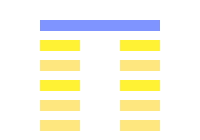
23.3.5.6 (23 > 39) - THE PO HEXAGRAM
- 3. The third line, divided, shows its subject among the overthrowers; but there will be no error.
- 5. The fifth line, divided, shows (its subject leading on the others like) a string of fishes, and (obtaining for them) the favour that lights on the inmates of the palace. There will be advantage in every way.
- 6. The topmost line, undivided, shows its subject (as) a great fruit which has not been eaten. The superior man finds (the people again) as a chariot carrying him. The small men (by their course) overthrow their own dwellings.
23.3.5.6 (23 > 39) - Relapsing
One comes back to almost the same place to commit the same mistake.
Bing DeepL Google Yandex23.3.5.6 (23 > 39) - Relapsing
One comes back to almost the same place to commit the same mistake.
Bing DeepL Google Yandex23.3.5.6 (23 > 39) - Poh, l’écroulement
Poh : opprimer, renverser, traiter durement.
- 3. Renverser, faire crouler quelque chose sans suite regrettable. C’est quand on le fait légitimement et pour bonnes raisons. C’est que cela atteint également grands et petits (ou abandonne).
-
5. Le prince généreux envers les gens du palais (litt.(/i] : qui enfile des poissons pour en faire présent), en retirera des avantages certains.
Peut-être devrait-on admettre déjà ici l’élément figuratif et symbolique, et voir dans l’hexagramme la figure du prince (ligne pleine supérieure) au-dessus de ses officiers rangés comme des poissons séchés et traduire : avoir des officiers comme des poissons enfilés. Alors, il s’agirait de [i]p’o, gens du palais. -
6. Fruit tout formé qu’on ne mange pas (bien acquis qui se détruit). Le sage, l’homme supérieur conquiert la terre (ou acquiert un char, le peuple qui le porte sur ses bras) ; l’homme bas et vulgaire fait crouler (poh) jusqu’à sa demeure (le fruit formé qu’il ne peut manger).
Il ne pourra plus en user.
23.3.5.6 (23 > 39) - Récidiver
On revient à peu près au même endroit pour commettre la même faute.
Bing DeepL Google Yandex23.3.5.6 (23 > 39) - Lepusztulás
- 3. Nem törődik a többiekkel többé.
- 5. Látja mi nem működik.
- 6. Elfogadja a veszteséget. Támogatást és lehetőséget kap.
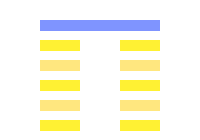
23.1.3.5.6 (23 > 63) - THE PO HEXAGRAM
- 1. The first line, divided, shows one overturning the couch by injuring its legs. (The injury will go on to) the destruction of (all) firm correctness, and there will be evil.
- 3. The third line, divided, shows its subject among the overthrowers; but there will be no error.
- 5. The fifth line, divided, shows (its subject leading on the others like) a string of fishes, and (obtaining for them) the favour that lights on the inmates of the palace. There will be advantage in every way.
- 6. The topmost line, undivided, shows its subject (as) a great fruit which has not been eaten. The superior man finds (the people again) as a chariot carrying him. The small men (by their course) overthrow their own dwellings.
23.1.3.5.6 (23 > 63) - Losing firmness
One collapses before finding any support.
Bing DeepL Google Yandex23.1.3.5.6 (23 > 63) - Losing firmness
One collapses before finding any support.
Bing DeepL Google Yandex23.1.3.5.6 (23 > 63) - Poh, l’écroulement
Poh : opprimer, renverser, traiter durement.
-
1. Poh, « renverser, faire crouler » son lit en en brisant un pied et le détachant ainsi (suites funestes).
C’est le grand, le prince qui se nuit à lui-même en appauvrissant, affaiblissant son peuple. - 3. Renverser, faire crouler quelque chose sans suite regrettable. C’est quand on le fait légitimement et pour bonnes raisons. C’est que cela atteint également grands et petits (ou abandonne).
-
5. Le prince généreux envers les gens du palais (litt.(/i] : qui enfile des poissons pour en faire présent), en retirera des avantages certains.
Peut-être devrait-on admettre déjà ici l’élément figuratif et symbolique, et voir dans l’hexagramme la figure du prince (ligne pleine supérieure) au-dessus de ses officiers rangés comme des poissons séchés et traduire : avoir des officiers comme des poissons enfilés. Alors, il s’agirait de [i]p’o, gens du palais. -
6. Fruit tout formé qu’on ne mange pas (bien acquis qui se détruit). Le sage, l’homme supérieur conquiert la terre (ou acquiert un char, le peuple qui le porte sur ses bras) ; l’homme bas et vulgaire fait crouler (poh) jusqu’à sa demeure (le fruit formé qu’il ne peut manger).
Il ne pourra plus en user.
23.1.3.5.6 (23 > 63) - Perdre sa fermeté
On s'affaisse avant d'avoir pu trouver le moindre soutien.
Bing DeepL Google Yandex23.1.3.5.6 (23 > 63) - Lepusztulás
- 1. Nem látja mit veszít.
- 3. Nem törődik a többiekkel többé.
- 5. Látja mi nem működik.
- 6. Elfogadja a veszteséget. Támogatást és lehetőséget kap.
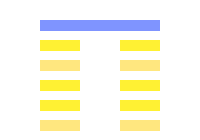
23.2.3.5.6 (23 > 48) - THE PO HEXAGRAM
- 2. The second line, divided, shows one overthrowing the couch by injuring its frame. (The injury will go on to) the destruction of (all) firm correctness, and there will be evil.
- 3. The third line, divided, shows its subject among the overthrowers; but there will be no error.
- 5. The fifth line, divided, shows (its subject leading on the others like) a string of fishes, and (obtaining for them) the favour that lights on the inmates of the palace. There will be advantage in every way.
- 6. The topmost line, undivided, shows its subject (as) a great fruit which has not been eaten. The superior man finds (the people again) as a chariot carrying him. The small men (by their course) overthrow their own dwellings.
23.2.3.5.6 (23 > 48) - Escaping from resentment
One flees rather than listen to a speech full of acrimony.
Bing DeepL Google Yandex23.2.3.5.6 (23 > 48) - Escaping from resentment
One flees rather than listen to a speech full of acrimony.
Bing DeepL Google Yandex23.2.3.5.6 (23 > 48) - Poh, l’écroulement
Poh : opprimer, renverser, traiter durement.
-
2. [i]Id. (Poh)[i], renverser son lit en en brisant la forme ; ruine, issue destructive. C’est celui qui se perd lui-même en perdant ses auxiliaires ; un roi, ses ministres ; un grand, ses employés et amis. (Dicton.)
Il n’aura pas de compagnons.
C’est la ruine s’étendant, gagnant le haut. - 3. Renverser, faire crouler quelque chose sans suite regrettable. C’est quand on le fait légitimement et pour bonnes raisons. C’est que cela atteint également grands et petits (ou abandonne).
-
5. Le prince généreux envers les gens du palais (litt.(/i] : qui enfile des poissons pour en faire présent), en retirera des avantages certains.
Peut-être devrait-on admettre déjà ici l’élément figuratif et symbolique, et voir dans l’hexagramme la figure du prince (ligne pleine supérieure) au-dessus de ses officiers rangés comme des poissons séchés et traduire : avoir des officiers comme des poissons enfilés. Alors, il s’agirait de [i]p’o, gens du palais. -
6. Fruit tout formé qu’on ne mange pas (bien acquis qui se détruit). Le sage, l’homme supérieur conquiert la terre (ou acquiert un char, le peuple qui le porte sur ses bras) ; l’homme bas et vulgaire fait crouler (poh) jusqu’à sa demeure (le fruit formé qu’il ne peut manger).
Il ne pourra plus en user.
23.2.3.5.6 (23 > 48) - S'évader de la rancœur
On fuit plutôt que d'écouter un discours plein d'acrimonie.
Bing DeepL Google Yandex23.2.3.5.6 (23 > 48) - Lepusztulás
- 2. Támasz, amire nem lehet számítani többé.
- 3. Nem törődik a többiekkel többé.
- 5. Látja mi nem működik.
- 6. Elfogadja a veszteséget. Támogatást és lehetőséget kap.
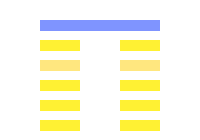
23.1.2.3.5.6 (23 > 5) - THE PO HEXAGRAM
- 1. The first line, divided, shows one overturning the couch by injuring its legs. (The injury will go on to) the destruction of (all) firm correctness, and there will be evil.
- 2. The second line, divided, shows one overthrowing the couch by injuring its frame. (The injury will go on to) the destruction of (all) firm correctness, and there will be evil.
- 3. The third line, divided, shows its subject among the overthrowers; but there will be no error.
- 5. The fifth line, divided, shows (its subject leading on the others like) a string of fishes, and (obtaining for them) the favour that lights on the inmates of the palace. There will be advantage in every way.
- 6. The topmost line, undivided, shows its subject (as) a great fruit which has not been eaten. The superior man finds (the people again) as a chariot carrying him. The small men (by their course) overthrow their own dwellings.
23.1.2.3.5.6 (23 > 5) - Imposing one's views
One presents their conclusions to those who have no other choice than accepting them.
Bing DeepL Google Yandex23.1.2.3.5.6 (23 > 5) - Imposing one's views
One presents their conclusions to those who have no other choice than accepting them.
Bing DeepL Google Yandex23.1.2.3.5.6 (23 > 5) - Poh, l’écroulement
Poh : opprimer, renverser, traiter durement.
-
1. Poh, « renverser, faire crouler » son lit en en brisant un pied et le détachant ainsi (suites funestes).
C’est le grand, le prince qui se nuit à lui-même en appauvrissant, affaiblissant son peuple. -
2. [i]Id. (Poh)[i], renverser son lit en en brisant la forme ; ruine, issue destructive. C’est celui qui se perd lui-même en perdant ses auxiliaires ; un roi, ses ministres ; un grand, ses employés et amis. (Dicton.)
Il n’aura pas de compagnons.
C’est la ruine s’étendant, gagnant le haut. - 3. Renverser, faire crouler quelque chose sans suite regrettable. C’est quand on le fait légitimement et pour bonnes raisons. C’est que cela atteint également grands et petits (ou abandonne).
-
5. Le prince généreux envers les gens du palais (litt.(/i] : qui enfile des poissons pour en faire présent), en retirera des avantages certains.
Peut-être devrait-on admettre déjà ici l’élément figuratif et symbolique, et voir dans l’hexagramme la figure du prince (ligne pleine supérieure) au-dessus de ses officiers rangés comme des poissons séchés et traduire : avoir des officiers comme des poissons enfilés. Alors, il s’agirait de [i]p’o, gens du palais. -
6. Fruit tout formé qu’on ne mange pas (bien acquis qui se détruit). Le sage, l’homme supérieur conquiert la terre (ou acquiert un char, le peuple qui le porte sur ses bras) ; l’homme bas et vulgaire fait crouler (poh) jusqu’à sa demeure (le fruit formé qu’il ne peut manger).
Il ne pourra plus en user.
23.1.2.3.5.6 (23 > 5) - Imposer ses vues
On présente ses conclusions à ceux qui n'ont pas d'autre choix que de les accepter.
Bing DeepL Google Yandex23.1.2.3.5.6 (23 > 5) - Lepusztulás
- 1. Nem látja mit veszít.
- 2. Támasz, amire nem lehet számítani többé.
- 3. Nem törődik a többiekkel többé.
- 5. Látja mi nem működik.
- 6. Elfogadja a veszteséget. Támogatást és lehetőséget kap.
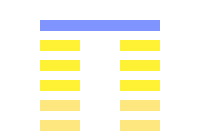
23.3.4.5.6 (23 > 31) - THE PO HEXAGRAM
- 3. The third line, divided, shows its subject among the overthrowers; but there will be no error.
- 4. The fourth line, divided, shows its subject having overthrown the couch, and (going to injure) the skin (of him who lies on it). There will be evil.
- 5. The fifth line, divided, shows (its subject leading on the others like) a string of fishes, and (obtaining for them) the favour that lights on the inmates of the palace. There will be advantage in every way.
- 6. The topmost line, undivided, shows its subject (as) a great fruit which has not been eaten. The superior man finds (the people again) as a chariot carrying him. The small men (by their course) overthrow their own dwellings.
23.3.4.5.6 (23 > 31) - Protecting oneself against nasty surprises
One returns to find out what the others have kept silent.
Bing DeepL Google Yandex23.3.4.5.6 (23 > 31) - Protecting oneself against nasty surprises
One returns to find out what the others have kept silent.
Bing DeepL Google Yandex23.3.4.5.6 (23 > 31) - Poh, l’écroulement
Poh : opprimer, renverser, traiter durement.
- 3. Renverser, faire crouler quelque chose sans suite regrettable. C’est quand on le fait légitimement et pour bonnes raisons. C’est que cela atteint également grands et petits (ou abandonne).
-
4. Renverser son lit en s’écorchant, en se nuisant à soi-même, destruction certaine, calamité proche.
Suite de la gradation, en renversant on se blesse -
5. Le prince généreux envers les gens du palais (litt.(/i] : qui enfile des poissons pour en faire présent), en retirera des avantages certains.
Peut-être devrait-on admettre déjà ici l’élément figuratif et symbolique, et voir dans l’hexagramme la figure du prince (ligne pleine supérieure) au-dessus de ses officiers rangés comme des poissons séchés et traduire : avoir des officiers comme des poissons enfilés. Alors, il s’agirait de [i]p’o, gens du palais. -
6. Fruit tout formé qu’on ne mange pas (bien acquis qui se détruit). Le sage, l’homme supérieur conquiert la terre (ou acquiert un char, le peuple qui le porte sur ses bras) ; l’homme bas et vulgaire fait crouler (poh) jusqu’à sa demeure (le fruit formé qu’il ne peut manger).
Il ne pourra plus en user.
23.3.4.5.6 (23 > 31) - Se prémunir contre les mauvaises surprises
On revient pour découvrir ce que les autres ont tu.
Bing DeepL Google Yandex23.3.4.5.6 (23 > 31) - Lepusztulás
- 3. Nem törődik a többiekkel többé.
- 4. Nem akar elviselni többé.
- 5. Látja mi nem működik.
- 6. Elfogadja a veszteséget. Támogatást és lehetőséget kap.
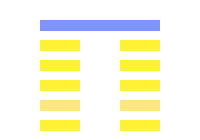
23.1.3.4.5.6 (23 > 49) - THE PO HEXAGRAM
- 1. The first line, divided, shows one overturning the couch by injuring its legs. (The injury will go on to) the destruction of (all) firm correctness, and there will be evil.
- 3. The third line, divided, shows its subject among the overthrowers; but there will be no error.
- 4. The fourth line, divided, shows its subject having overthrown the couch, and (going to injure) the skin (of him who lies on it). There will be evil.
- 5. The fifth line, divided, shows (its subject leading on the others like) a string of fishes, and (obtaining for them) the favour that lights on the inmates of the palace. There will be advantage in every way.
- 6. The topmost line, undivided, shows its subject (as) a great fruit which has not been eaten. The superior man finds (the people again) as a chariot carrying him. The small men (by their course) overthrow their own dwellings.
23.1.3.4.5.6 (23 > 49) - Becoming an accomplice
One is involved in a conspiracy that the others have hatched.
Bing DeepL Google Yandex23.1.3.4.5.6 (23 > 49) - Becoming an accomplice
One is involved in a conspiracy that the others have hatched.
Bing DeepL Google Yandex23.1.3.4.5.6 (23 > 49) - Poh, l’écroulement
Poh : opprimer, renverser, traiter durement.
-
1. Poh, « renverser, faire crouler » son lit en en brisant un pied et le détachant ainsi (suites funestes).
C’est le grand, le prince qui se nuit à lui-même en appauvrissant, affaiblissant son peuple. - 3. Renverser, faire crouler quelque chose sans suite regrettable. C’est quand on le fait légitimement et pour bonnes raisons. C’est que cela atteint également grands et petits (ou abandonne).
-
4. Renverser son lit en s’écorchant, en se nuisant à soi-même, destruction certaine, calamité proche.
Suite de la gradation, en renversant on se blesse -
5. Le prince généreux envers les gens du palais (litt.(/i] : qui enfile des poissons pour en faire présent), en retirera des avantages certains.
Peut-être devrait-on admettre déjà ici l’élément figuratif et symbolique, et voir dans l’hexagramme la figure du prince (ligne pleine supérieure) au-dessus de ses officiers rangés comme des poissons séchés et traduire : avoir des officiers comme des poissons enfilés. Alors, il s’agirait de [i]p’o, gens du palais. -
6. Fruit tout formé qu’on ne mange pas (bien acquis qui se détruit). Le sage, l’homme supérieur conquiert la terre (ou acquiert un char, le peuple qui le porte sur ses bras) ; l’homme bas et vulgaire fait crouler (poh) jusqu’à sa demeure (le fruit formé qu’il ne peut manger).
Il ne pourra plus en user.
23.1.3.4.5.6 (23 > 49) - Devenir complice
On trempe dans un complot que les autres ont ourdi.
Bing DeepL Google Yandex23.1.3.4.5.6 (23 > 49) - Lepusztulás
- 1. Nem látja mit veszít.
- 3. Nem törődik a többiekkel többé.
- 4. Nem akar elviselni többé.
- 5. Látja mi nem működik.
- 6. Elfogadja a veszteséget. Támogatást és lehetőséget kap.
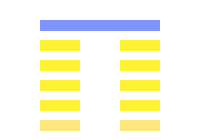
23.2.3.4.5.6 (23 > 28) - THE PO HEXAGRAM
- 2. The second line, divided, shows one overthrowing the couch by injuring its frame. (The injury will go on to) the destruction of (all) firm correctness, and there will be evil.
- 3. The third line, divided, shows its subject among the overthrowers; but there will be no error.
- 4. The fourth line, divided, shows its subject having overthrown the couch, and (going to injure) the skin (of him who lies on it). There will be evil.
- 5. The fifth line, divided, shows (its subject leading on the others like) a string of fishes, and (obtaining for them) the favour that lights on the inmates of the palace. There will be advantage in every way.
- 6. The topmost line, undivided, shows its subject (as) a great fruit which has not been eaten. The superior man finds (the people again) as a chariot carrying him. The small men (by their course) overthrow their own dwellings.
23.2.3.4.5.6 (23 > 28) - Faking benevolence
One likes to make others believe that they will have no trouble making themselves heard.
Bing DeepL Google Yandex23.2.3.4.5.6 (23 > 28) - Faking benevolence
One likes to make others believe that they will have no trouble making themselves heard.
Bing DeepL Google Yandex23.2.3.4.5.6 (23 > 28) - Poh, l’écroulement
Poh : opprimer, renverser, traiter durement.
-
2. [i]Id. (Poh)[i], renverser son lit en en brisant la forme ; ruine, issue destructive. C’est celui qui se perd lui-même en perdant ses auxiliaires ; un roi, ses ministres ; un grand, ses employés et amis. (Dicton.)
Il n’aura pas de compagnons.
C’est la ruine s’étendant, gagnant le haut. - 3. Renverser, faire crouler quelque chose sans suite regrettable. C’est quand on le fait légitimement et pour bonnes raisons. C’est que cela atteint également grands et petits (ou abandonne).
-
4. Renverser son lit en s’écorchant, en se nuisant à soi-même, destruction certaine, calamité proche.
Suite de la gradation, en renversant on se blesse -
5. Le prince généreux envers les gens du palais (litt.(/i] : qui enfile des poissons pour en faire présent), en retirera des avantages certains.
Peut-être devrait-on admettre déjà ici l’élément figuratif et symbolique, et voir dans l’hexagramme la figure du prince (ligne pleine supérieure) au-dessus de ses officiers rangés comme des poissons séchés et traduire : avoir des officiers comme des poissons enfilés. Alors, il s’agirait de [i]p’o, gens du palais. -
6. Fruit tout formé qu’on ne mange pas (bien acquis qui se détruit). Le sage, l’homme supérieur conquiert la terre (ou acquiert un char, le peuple qui le porte sur ses bras) ; l’homme bas et vulgaire fait crouler (poh) jusqu’à sa demeure (le fruit formé qu’il ne peut manger).
Il ne pourra plus en user.
23.2.3.4.5.6 (23 > 28) - Feindre la bienveillance
On se plaît à faire croire aux autres qu'ils n'auront aucun mal à se faire entendre.
Bing DeepL Google Yandex23.2.3.4.5.6 (23 > 28) - Lepusztulás
- 2. Támasz, amire nem lehet számítani többé.
- 3. Nem törődik a többiekkel többé.
- 4. Nem akar elviselni többé.
- 5. Látja mi nem működik.
- 6. Elfogadja a veszteséget. Támogatást és lehetőséget kap.
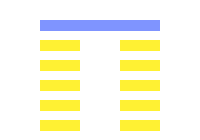
23.1.2.3.4.5.6 (23 > 43) - THE PO HEXAGRAM
- 1. The first line, divided, shows one overturning the couch by injuring its legs. (The injury will go on to) the destruction of (all) firm correctness, and there will be evil.
- 2. The second line, divided, shows one overthrowing the couch by injuring its frame. (The injury will go on to) the destruction of (all) firm correctness, and there will be evil.
- 3. The third line, divided, shows its subject among the overthrowers; but there will be no error.
- 4. The fourth line, divided, shows its subject having overthrown the couch, and (going to injure) the skin (of him who lies on it). There will be evil.
- 5. The fifth line, divided, shows (its subject leading on the others like) a string of fishes, and (obtaining for them) the favour that lights on the inmates of the palace. There will be advantage in every way.
- 6. The topmost line, undivided, shows its subject (as) a great fruit which has not been eaten. The superior man finds (the people again) as a chariot carrying him. The small men (by their course) overthrow their own dwellings.
23.1.2.3.4.5.6 (23 > 43) - Terrorizing one's subjects
One represses those who seek justice.
Bing DeepL Google Yandex23.1.2.3.4.5.6 (23 > 43) - Terrorizing one's subjects
One represses those who seek justice.
Bing DeepL Google Yandex23.1.2.3.4.5.6 (23 > 43) - Poh, l’écroulement
Poh : opprimer, renverser, traiter durement.
-
1. Poh, « renverser, faire crouler » son lit en en brisant un pied et le détachant ainsi (suites funestes).
C’est le grand, le prince qui se nuit à lui-même en appauvrissant, affaiblissant son peuple. -
2. [i]Id. (Poh)[i], renverser son lit en en brisant la forme ; ruine, issue destructive. C’est celui qui se perd lui-même en perdant ses auxiliaires ; un roi, ses ministres ; un grand, ses employés et amis. (Dicton.)
Il n’aura pas de compagnons.
C’est la ruine s’étendant, gagnant le haut. - 3. Renverser, faire crouler quelque chose sans suite regrettable. C’est quand on le fait légitimement et pour bonnes raisons. C’est que cela atteint également grands et petits (ou abandonne).
-
4. Renverser son lit en s’écorchant, en se nuisant à soi-même, destruction certaine, calamité proche.
Suite de la gradation, en renversant on se blesse -
5. Le prince généreux envers les gens du palais (litt.(/i] : qui enfile des poissons pour en faire présent), en retirera des avantages certains.
Peut-être devrait-on admettre déjà ici l’élément figuratif et symbolique, et voir dans l’hexagramme la figure du prince (ligne pleine supérieure) au-dessus de ses officiers rangés comme des poissons séchés et traduire : avoir des officiers comme des poissons enfilés. Alors, il s’agirait de [i]p’o, gens du palais. -
6. Fruit tout formé qu’on ne mange pas (bien acquis qui se détruit). Le sage, l’homme supérieur conquiert la terre (ou acquiert un char, le peuple qui le porte sur ses bras) ; l’homme bas et vulgaire fait crouler (poh) jusqu’à sa demeure (le fruit formé qu’il ne peut manger).
Il ne pourra plus en user.
23.1.2.3.4.5.6 (23 > 43) - Terroriser ses sujets
On réprime ceux qui demandent justice.
Bing DeepL Google Yandex23.1.2.3.4.5.6 (23 > 43) - Lepusztulás
- 1. Nem látja mit veszít.
- 2. Támasz, amire nem lehet számítani többé.
- 3. Nem törődik a többiekkel többé.
- 4. Nem akar elviselni többé.
- 5. Látja mi nem működik.
- 6. Elfogadja a veszteséget. Támogatást és lehetőséget kap.

